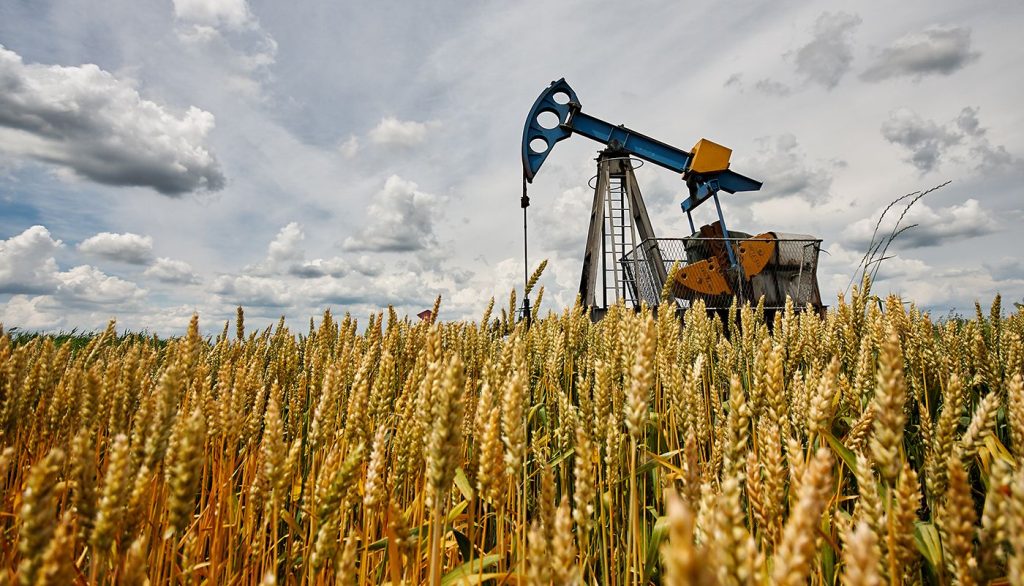Commodity Trading: Gold, Oil, and Beyond
Commodity trading is a dynamic sector of the financial markets, offering traders opportunities to speculate on the prices of tangible… Continue reading Commodity Trading: Gold, Oil, and Beyond

Commodity trading is a dynamic sector of the financial markets, offering traders opportunities to speculate on the prices of tangible goods such as gold, oil, and a variety of other raw materials.
Commodity trading is a dynamic sector of the financial markets, offering traders opportunities to speculate on the prices of tangible goods such as gold, oil, and a variety of other raw materials. Unlike stock trading, where you invest in a company’s shares, commodity trading involves buying and selling contracts based on the price of physical goods. In this article, we’ll explore the essentials of commodity trading, focusing on major commodities like gold, oil, and the broad range of other assets that make this market a critical component of the global economy.
🔍 What is Commodity Trading?
Commodity trading involves the buying and selling of raw materials or primary agricultural products, such as gold, oil, wheat, or coffee. Commodities are typically categorized into two main groups:
- Hard Commodities: These are natural resources that are mined or extracted, such as gold, silver, oil, and metals.
- Soft Commodities: These are agricultural products or livestock, including items like wheat, coffee, sugar, and cotton.
Traders can gain exposure to commodity prices through futures contracts, options, ETFs, and other derivatives like CFDs. Commodity markets are global and operate on major exchanges like the Chicago Mercantile Exchange (CME) and the London Metal Exchange (LME).
🏆 Why Trade Commodities?
Commodity trading offers a variety of benefits, such as:
- Diversification: Adding commodities to a trading portfolio can help reduce risk, as commodities often move independently of stocks and bonds.
- Inflation Hedge: Commodities, especially gold and oil, are considered safe-haven assets that retain value during inflationary periods.
- Speculation Opportunities: Commodity prices can be highly volatile, providing opportunities for traders to profit from price movements.
🌟 Key Commodities in the Market
🟡 1. Gold

Gold is one of the most popular commodities, known for its role as a safe-haven asset. It is a store of value that traders flock to during times of economic uncertainty. Investors often buy gold to hedge against inflation, currency devaluation, or geopolitical turmoil.
How to Trade Gold
- Futures Contracts: Agreements to buy or sell a specific amount of gold at a predetermined price at a future date.
- Spot Trading: Buying and selling gold for immediate delivery.
- Gold ETFs: Exchange-traded funds that track the price of gold without the need to own the physical metal.
- Gold Mining Stocks: Shares in companies that produce gold, offering indirect exposure to the metal’s price movements.
Factors Affecting Gold Prices
- Global economic data
- Central bank policies
- Geopolitical events
- U.S. Dollar strength or weakness
🛢️ 2. Oil

Oil is another major commodity that plays a critical role in the global economy. There are two main types of oil traded on the markets:
- Brent Crude: Primarily extracted from the North Sea, Brent crude is the global benchmark.
- West Texas Intermediate (WTI): The benchmark for oil prices in the United States.
How to Trade Oil
- Futures Contracts: These contracts are used to buy or sell oil at a future date, with Brent and WTI being the most commonly traded oil futures.
- ETFs and ETNs: Exchange-traded funds and exchange-traded notes that track the performance of oil prices.
- CFDs (Contracts for Difference): Allows traders to speculate on oil price movements without actually owning the oil.
Factors Influencing Oil Prices
- Supply and demand dynamics
- OPEC production decisions
- Geopolitical tensions
- U.S. Dollar fluctuations
- Natural disasters and environmental policies
🌾 3. Beyond Gold and Oil: Other Key Commodities

Commodity trading isn’t just about gold and oil; there’s a wide range of assets traders can explore:
- Silver: Similar to gold, silver is both a precious metal and an industrial metal, used in electronics, batteries, and solar panels.
- Natural Gas: A vital source of energy, especially during colder months. Prices can be highly volatile based on weather patterns and geopolitical factors.
- Wheat and Corn: Agricultural commodities essential to the food supply chain. Prices can fluctuate due to weather conditions, trade policies, and changes in supply and demand.
- Coffee and Cocoa: Soft commodities heavily influenced by weather, production levels in key regions, and consumer demand trends.
🧩 Commodity Trading Strategies
📈 1. Hedging
Hedging is the act of reducing the risk of adverse price movements. For instance, an airline company might buy oil futures to hedge against rising fuel costs.
📉 2. Speculation
Speculative trading involves betting on the future price direction of a commodity. Traders analyze market trends, economic data, and geopolitical events to forecast where prices might head.
⛓️ 3. Arbitrage
Arbitrage trading involves exploiting price differences in the same asset on different markets. For example, if gold is priced lower on one exchange compared to another, a trader can buy it from the cheaper exchange and sell it on the more expensive one.
📊 4. Trend Following
Trend following is a strategy that involves buying commodities that are showing upward trends and selling those with downward trends. Traders use technical indicators like moving averages to make decisions.
🏅 Benefits and Risks of Commodity Trading
| Benefits | Risks |
|---|---|
| Portfolio diversification | High volatility |
| Hedge against inflation | Leverage can amplify losses |
| Profit opportunities in bear markets | Geopolitical risks |
| Exposure to global economic trends | Environmental regulations |
📋 Mitigating Risks in Commodity Trading
- Diversify your portfolio: Don’t put all your eggs in one basket.
- Use stop-loss orders: Protect against significant losses.
- Stay informed: Regularly check economic news, geopolitical events, and market reports.
🚀 Getting Started with Commodity Trading in a Funded Evaluation Firm
For traders looking to get involved in commodity trading through a funded evaluation firm, there are a few things to consider:
- Develop a Solid Trading Plan: Know your entry and exit strategies, risk tolerance, and objectives.
- Master Risk Management: Funded firms typically have strict risk management requirements, so understanding how to hedge effectively and use stop-losses is crucial.
- Learn About Correlations: Commodities are often linked to currency movements. For example, gold has an inverse relationship with the U.S. dollar, while oil prices can affect CAD/USD. Knowing these can help diversify and manage positions effectively.
- Use Demo Accounts for Practice: Practice trading on demo accounts before committing real capital to gain a better understanding of the market.
📖 Conclusion
Commodity trading can be a rewarding venture, but it requires a solid understanding of the markets and diligent risk management. Whether you're trading gold, oil, or agricultural products, understanding the factors that drive prices and how to navigate the markets can make the difference between profit and loss. For traders in funded evaluation firms, mastering commodity trading can provide a robust pathway to successful portfolio management, helping them to achieve consistent performance and secure funding.
📚 FAQ
1. What are the best commodities to trade?
Gold, oil, and natural gas are some of the most traded commodities, but it depends on market trends and your trading strategy.
2. How can I start trading commodities?
You can start by opening an account with a brokerage that offers commodity trading, or by joining a funded evaluation firm to trade with allocated capital.
3. Are commodities a good hedge against inflation?
Yes, commodities like gold and oil are considered good hedges against inflation as they tend to retain value even when currencies depreciate.
4. What is the difference between futures and spot trading in commodities?
Futures involve contracts to buy or sell a commodity at a future date, while spot trading deals with immediate delivery of the commodity.
By understanding and mastering commodity trading, you can diversify your portfolio, hedge against risks, and leverage market opportunities effectively, all while maintaining control over your risk exposure.







